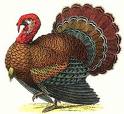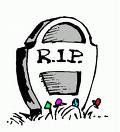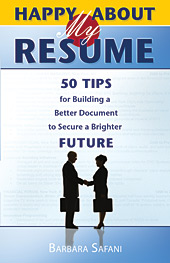 Today I led a resume writing teleseminar for members of SHRM and the session generated a lot of great questions. Here’s a quick recap. Maybe there are a few questions here that you have often wondered about yourself.
Today I led a resume writing teleseminar for members of SHRM and the session generated a lot of great questions. Here’s a quick recap. Maybe there are a few questions here that you have often wondered about yourself.
In resume writing, what’s the best style to use: chronological or functional?
Most recruiters and hiring managers prefer a chronological format, but there are some instances when it makes more sense to stress functional skills over chronology. Examples would be when you are changing careers or when there is a gap in your chronology. Even when you want to stress function, it is still important to show chronology, even if it is very abbreviated.
Are there power words to avoid?
Job seekers should avoid overused phrases; terms like team player, quick learner, detail-oriented, or great communicator and opt for action-oriented phrases that prove impact. For example, instead of saying great communicator, say facilitated five training sessions on benefits open enrollment procedures and received a 5 out of 5 facilitator rating on 100+ evaluations.
What skills are most important on a resume?
Job seekers need to match competencies to what the job spec requires. Employers are looking for people who can solve problems and work well in teams. But it is not enough to just say this. You must prove it with success stories.
How do you explain short tenure with past employer on resume?
If you were downsized, the company closed, or if you left an employer to return to school, let your reader know that right in the resume. If you left because of differences with a boss, I don’t recommend this same level of disclosure.
Strict limit of 1 page, or are 2 pages OK?
Most recent grads only need one page, but as you progress through your career, two pages is fine and generally more appropriate.
When an online job posting asks for salary history and requirements, should those be added to an existing resume or submitted on a separate document?
Never document your salary history on a resume and if possible don’t include it on your other documents. Past salary is usually an inappropriate benchmark. If you feel you must disclose salary, give a range that accounts for total compensation and includes things like overtime, bonuses, etc.
What items are most impactful in a skills section of your resume?
It depends on the job and job seekers should try to match their skills to those of the job spec as closely as possible. Hiring managers want to see accomplishments, not just skills. They want to know how you have made an impact in the companies you have supported and how you help them do things smarter, faster, and more efficiently.
Should you always include a cover letter?
Research shows that a little more than half of hiring authorities read cover letters and the other half do not. But you never know which half you are going to get, so it is prudent to include a cover letter.
Do I need to mention the references in the resume or provide them when asked?
The phrase “references available upon request” is unnecessary on a resume…employers will ask you for references when they want them and few will check them until an offer is extended or they have determined that you are a final candidate. The reality these days is that references are available without request…more and more hiring authorities are trolling the Internet to see what information they can find out about candidates. Make sure you have audited your online identity…particularly if you have a Facebook or Myspace page.
What components are included in an effective resume? What can guarantee an interview when pursuing a new position? During the interview, what can almost certainly land you the job?
A good resume includes a profile to highlight the candidate’s overall value add, a competency section to list core skills, and several accomplishment-focused stories that prove how you have helped the companies you support make money, save money, save time, grow the business, or keep the business. A strong resume can help secure interviews, but most people get their interviews through people they know. It is critical that job seekers have a strategic networking plan and not solely rely on the resume for interviews. During the interview, the candidate must be able to prove through accomplishment-focused metrics-driven stories that they have the skill set, knowledge, and experience to succeed in the job. They also need to be able to prove that they are a good fit for the organization, so be sure to read up on the culture and history of the company before the interview. Interviewing is not science and a lot of the process is subjective. The relationship you build with the hiring manager is more important than your skills. They can teach you skills, but they can’t change who you are. Your best strategy is to be prepared with multiple stories that prove your success. This helps minimize uncertainty on the hiring manager’s part and build a connection with them as well.
How do I format my resume if I am a grad student just entering my new field as an entry level employee?
Place your education section after your profile and focus on coursework and school accomplishments that show the transferability of your academic work to the real world.
 Over 27 million people are using LinkedIn to get in front of potential hiring managers, recruiters, business partners, and decision makers. Yet many LinkedIn profiles I view are missing the key ingredients that help differentiate candidates and are simply a laundry list of every job the person has ever held.
Over 27 million people are using LinkedIn to get in front of potential hiring managers, recruiters, business partners, and decision makers. Yet many LinkedIn profiles I view are missing the key ingredients that help differentiate candidates and are simply a laundry list of every job the person has ever held.








